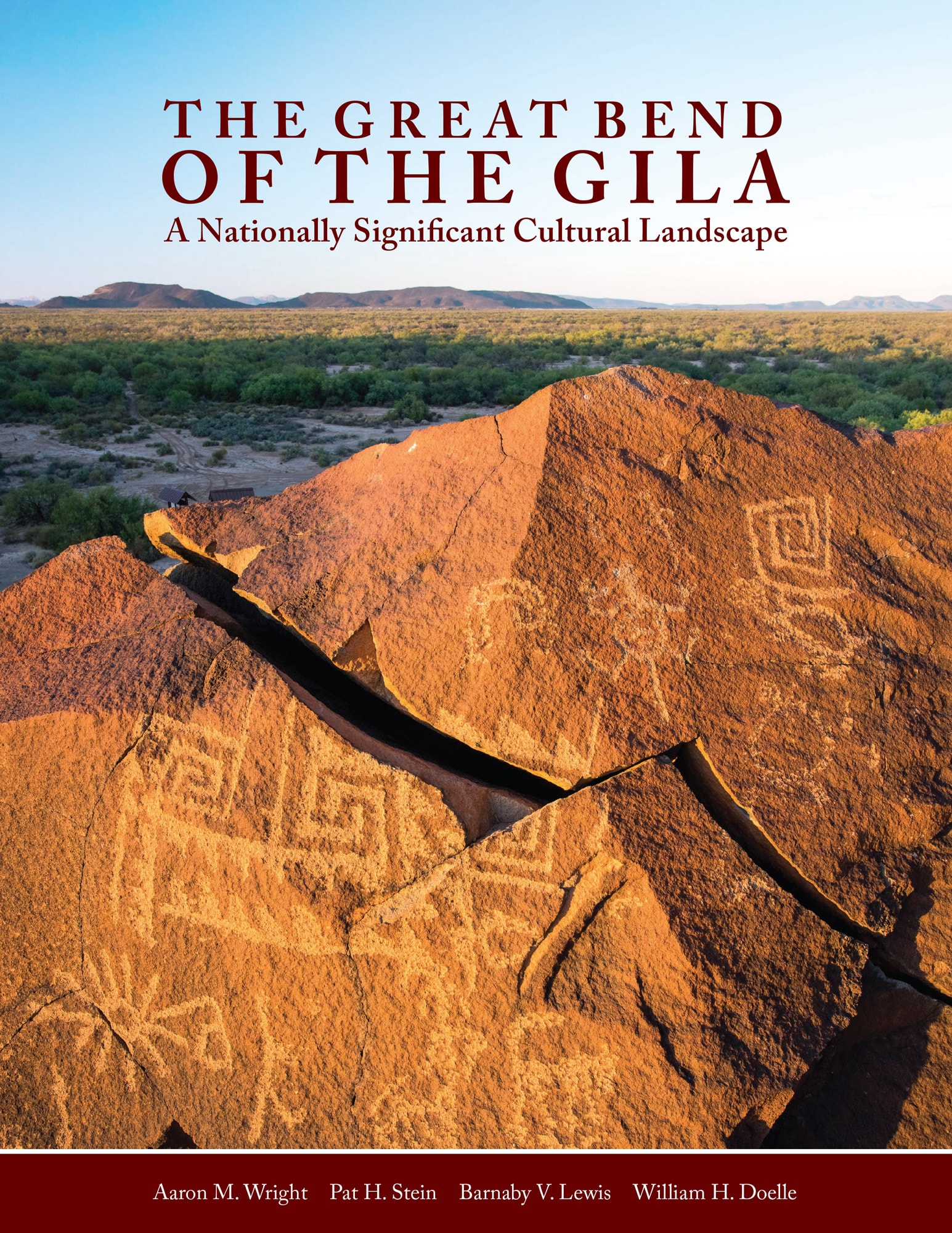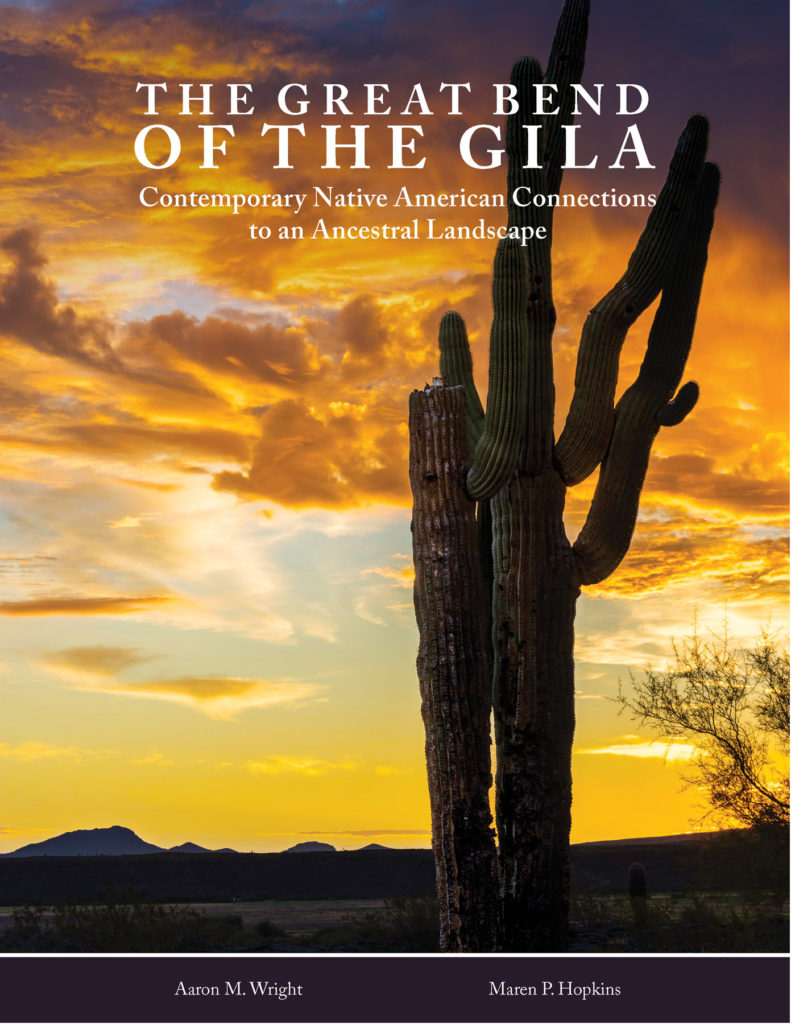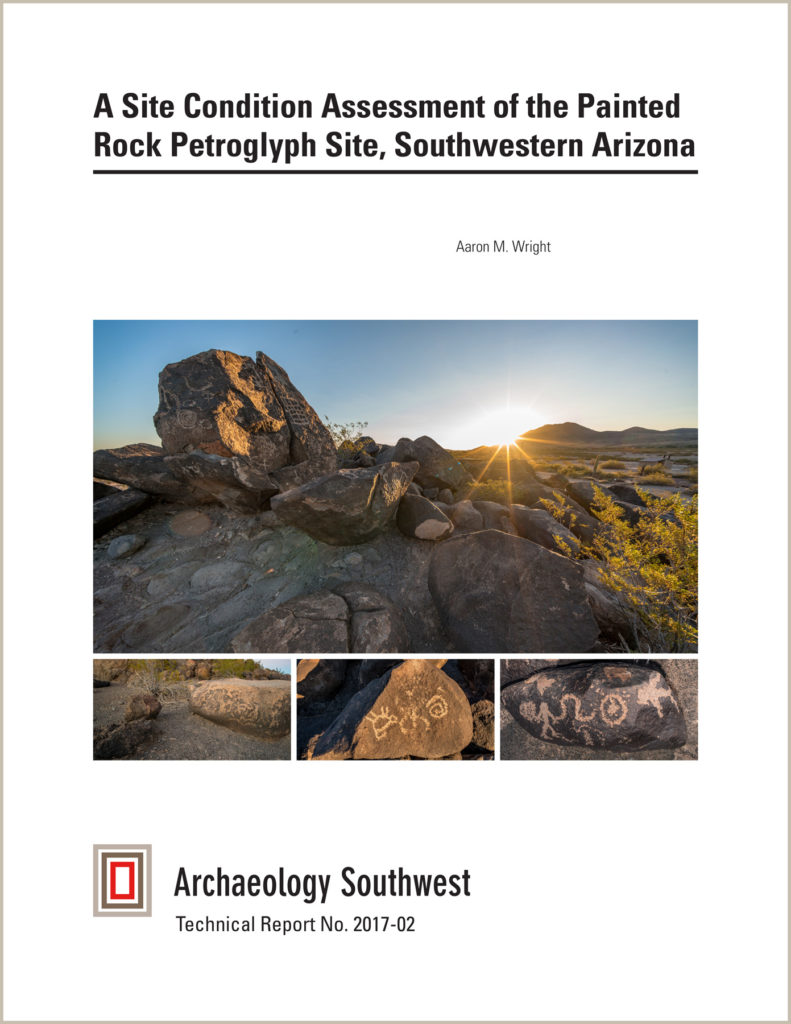Archaeology Southwest is pleased to announce that a team of affiliated researchers has earned a prestigious Collaborative Research Grant from the National Endowment for the Humanities (NEH). The $175,000 grant will help fund the Lower Gila River Ethnographic and Archaeological Project, an interdisciplinary humanities program directed by Preservation Archaeologist Aaron Wright. The three-year study (RZ-255760) will investigate the unique cultural landscape of the lower Gila River in southwest Arizona in light of the oral histories and perspectives of members of four culturally associated tribes.
“We see this project as a way for our community to reconnect with ancestral Quechan places from which we have been displaced. These places are all that is left of our ancestors, and they are how we connect with our past and ensure that we continue into the future,” said Mike Jackson Sr., former Quechan Tribal Chair, in a letter of support.
In addition to the Fort Yuma Quechan Indian Tribe, the project includes representatives from the Cocopah Indian Tribe, Yavapai-Prescott Indian Tribe, and Salt River Pima-Maricopa Indian Community. Jeffery J. Clark (Archaeology Southwest and University of Arizona) and Matthew A. Peeples (Arizona State University) are also part of the team.
“I would like to extend my congratulations to Archaeology Southwest and their team of researchers for securing the Collaborative Research Grant,” said Congressman Raúl M. Grijalva (AZ-03). “With this grant, Archaeology Southwest will help safeguard the histories, experiences, stories, and perspectives of the lower Gila River. These places are cultural heritage sites that speak to the region’s unique history, and now they will be available for a broader audience to connect with and conserve.”
The NEH is an independent federal agency created in 1965. It is one of the largest funders of humanities programs in the United States and awards grants to top-rated proposals examined by panels of independent, external reviewers. “NEH grants ensure that Americans around the country have the opportunity to engage with our shared cultural heritage,” said NEH Acting Chairman Jon Parrish Peede. “From traveling exhibitions and teacher workshops to efforts to preserve local history, these projects demonstrate the power of the humanities to build connections, stimulate discovery, and contribute to vibrant communities.”
The Lower Gila River Ethnographic and Archaeological Project at a Glance:
- $175,000 Collaborative Research Grant from the National Endowment for the Humanities
- Three-year oral history and cultural landscape study
- Project Director: Aaron Wright, PhD
- Tribal Collaborators: Fort Yuma Quechan Indian Tribe, Cocopah Indian Tribe, Yavapai-Prescott Indian Tribe, and Salt River Pima-Maricopa Indian Community
- Additional Scholars: Jeffery J. Clark, PhD (Archaeology Southwest and University of Arizona), Matthew A. Peeples, PhD (Arizona State University)
Read a news release from NEH about the award here.
Any views, findings, conclusions, or recommendations expressed in this study do not necessarily represent those of the National Endowment for the Humanities.
In the news:
- Tucson archaeological firm wins grant for Gila River history project — Blake Herzog, Yuma Sun, 9/17/17
- Archaeology Project Involving Local Tribes Receives Grant — Stephanie Sanchez, KAWC Colorado River Public Media, 8/29/17
- Grijalva Congratulates Archaeology Southwest on $175,000 NEH Grant — 8/2/17
Read recent reports about the research area:
- Assessing the Stability and Sustainability of Rock Art Sites: Insight from Southwestern Arizona
- A Site Condition Assessment of the Painted Rock Petroglyph Site, Southwestern Arizona (opens as a PDF)
- The Great Bend of the Gila: A Nationally Significant Cultural Landscape (opens as a PDF)
- The Great Bend of the Gila: Contemporary Native American Connections to an Ancestral Landscape (opens as a PDF)
Details
Related to This
-
Project Fluid Identities
-
Project The Great Bend of the Gila
-
Culture Pataya
-
Post Where’s the Buff?
-
Post Life of the Gila



